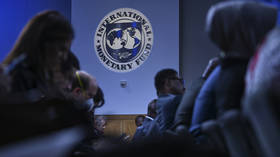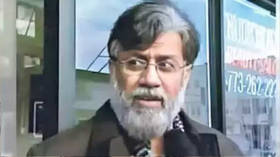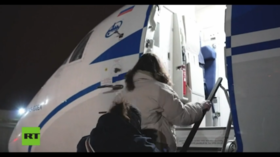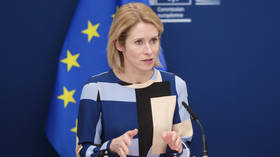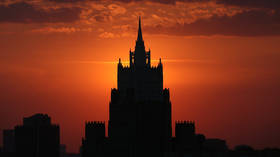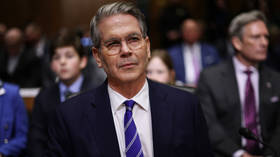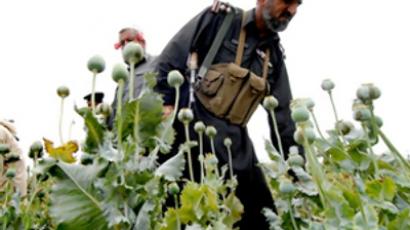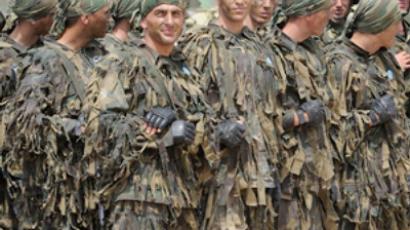“Rapid Response” from post-Soviet space
Post-soviet states are to bolster security in the region by setting up a rapid response task force. This plan is overshadowed by souring Russia-Belarus relations.
“The main event of this summit is the signing of the agreement on the CSTO collective rapid reaction forces,” said Russia’s President Dmitry Medvedev.
“This agreement regulates the most important issues, such as the makeup and the goal of the new collective security mechanism,” he noted.
According to Medvedev, it will enable the efficient response to “the most significant modern threats – international terrorism, local and transboundary crimes, drug trafficking and regional conflicts.”
Several other documents signed define the CSTO priorities until 2012 and define the ways of the collective response to emergency situations, such as man-made disasters. An action plan that would suppress illegal migration has also been agreed.
Most post-soviet countries’ leaders are in Moscow for an official summit of the Collective Security Treaty Organization. The body was set up in 1992 and is made up of seven republics of the former USSR.
The main purpose of the task force will be to prevent any sort of security breach in the member states of the Collective Security Treaty Organization. Notably, the force will be dealing with fires, drug and human trafficking, and the prevention of terrorist attacks.
Some critics draw parallels between the organization acquiring such a force and the NATO structure. However, this was strongly refuted by Secretary-General Nikolay Bordyuzha.
On the contrary, the leadership of the organization is saying that it is not conceived as a counter-weight to NATO in Europe. Quite the opposite, it will be able to assist the alliance in any antiterrorist activities around the region.
Those out of play
The summit is being held without Belarus, but as Russian Foreign Minister Sergey Lavrov pointed out, the countries present can still make progress.
“Belarus notified us that it will not be present at the summit,” the Foreign Minister pointed out.
“We have come to the conclusion that the absence of Belarus is not an obstacle for the leaders to sign the documents prepared for today,” he added.
“Belarus decided not to take part in the summit – this is a decision of a single state. We respect it, but I don't quite understand it. It makes us all hostages of bilateral issues between the two countries,” Russian president Dmitry Medvedev said.
At a press conference Russia’s President said:
“What happened today, I mean the decision of the Belarusian party not to participate in today’s CSTO summit, is the decision of one state. We respect it, but I cannot quite fully understand it. Making it a hostage of a multilateral format, making all the others dependent on the problems just between two parties is not exactly right.”
Minsk refused to attend the summit after Moscow banned dairy imports from Belarus. President Aleksander Lukashenko was adamant that the CSTO would get nowhere without his participation.
Commentators have been analyzing Lukashenko’s latest move.
“Belarus won't be able to take any real strategic decisions. It's not able to change its geopolitical orientation. It's not able to join any western alliance because it will be objected. So no major changes right now can occur – so it's only emotions but nothing else,” political analyst Kirill Koktysh said.
However, the documents were signed despite the absence of Belarus. Moscow is pledging to provide half of the military power for the new unit; the rest will be put up by the other six members. Experts say this will bring major relief for the region.
Military analyst Martin Van Creveld said the force will have a role to play.
”The Russian Federation is a big country and it has plenty of minorities and is surrounded by many states with which it has border disputes, ideological, religious and ethnical differences. I think there are plenty of conflicts in and around Russia’s borders,” he said.
The need for a special task force was voiced following last summer's war in South Ossetia. In February, concerned about the region's safety, CSTO leaders decided to set up the military response unit.
The new task force may become operational as early as by the end of this summer.
Some experts describe the collective security treaty organization as a counterweight to NATO and the creation of this new military force would seem to add to their claims. But the organization's leadership refutes such a suggestion and says that, on the contrary, the new force will be able to assist NATO in the fight against terrorism.
Uzbekistan – another post-soviet state that did not sign the agreement today in Moscow – preferred to take some time to consider it. Such a decision, though, does not seem to be connected with any problems in the creation of the task force.
Milk wars
Sergey Lavrov also criticized the Belarusian President Aleksandr Lukashenko for not attending the summit, despite Belarus currently holding the organization’s presidency.
The relations between Russia and its neighbor and ally Belarus have become increasingly strained with Moscow’s recent banning of Belarusian dairy products.
Minsk claims that Russia is pressurizing it to recognize Abkhazia and South Ossetia in exchange for financial aid. Moscow vehemently denies these allegations.
Russia says that new regulations regarding the labeling of powdered milk have been ignored by Belarusian dairy producers and are the reason for the import ban.
Earlier Russian finance minister Aleksey Kudrin accused Belarus of wasting Russian financial aid and warned that Minsk might even default on its debt.




